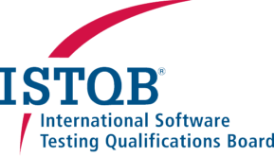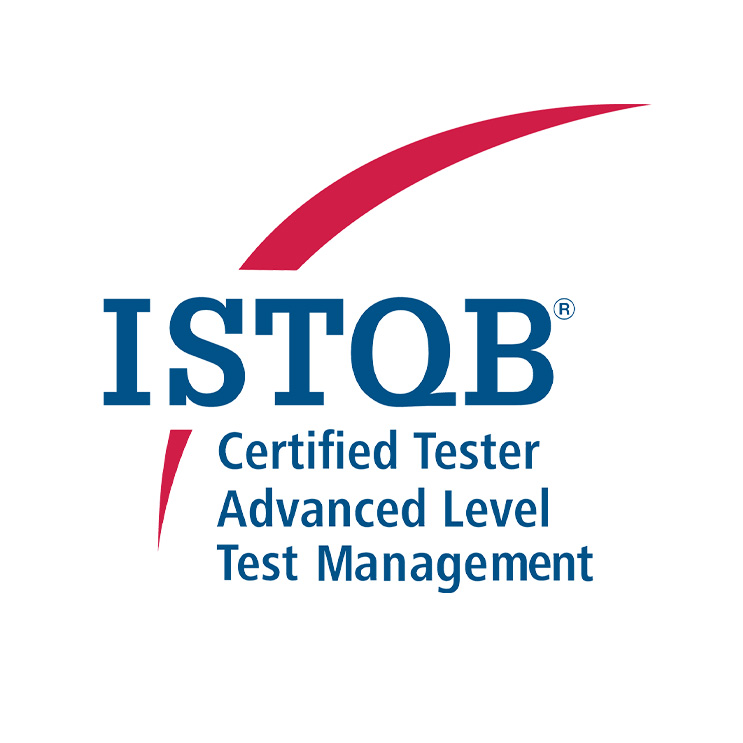Certified Tester Advanced Level Test Management (CTAL-TM) v3.0
Overview
The ISTQB® Advanced Level Test Management (CTAL-TM) certification provides the knowledge and competencies to take responsibility for managing all the testing activities across the software development lifecycle. It covers everything from how to design a suitable test approach for the project based on the organizational test strategy to building a test team or testing competencies to complete the necessary testing.
Audience
This Advanced Level qualification is aimed at anyone involved in the management of software testing. This includes people in roles such as testers, test consultants, test managers, user acceptance testers, scrum masters, project managers or product owners. This Advanced Level Test Management qualification is also appropriate for anyone who wants an advanced understanding of software testing such as project managers, quality managers, software development managers, business analysts, IT directors and management consultants. Holders of the Advanced Level Test Management Certificate will be able to go on to the ISTQB® Expert Level software testing qualifications. The ISTQB® Certified Tester Advanced Level – Test Manager or Test Management certificate is valid for life and does not require renewal. The certificate is recognized internationally and demonstrates the candidates’ professional competence and credibility in test management.
To gain this certification, candidates must hold the Certified Tester Foundation Level v4.0 or previous versions of the Foundation Level certificate and have sufficient practical experience. Please contact an ISTQB® Member Board or Exam Provider to determine the specific practical experience criteria..
Content
ISTQB® Certified Tester Advanced Level Test Management v3.0 (CTAL-TM)
Managing the Test Activities
Managing the Product
Managing the Team
The Test Process
Test Planning Activities
Test Monitoring and
Control Activities
Test Completion Activities
The Context of Testing
Test Stakeholders
Importance of Stakeholders Knowledge in test Management
Test Management in Hybrid Software Development Model
Test management Activities for Various Lifecycle Models
Test management Activities at Various test Levels
Test management Activities for Different test Types
Test management Activities to Plan, Monitor, and Control
Risk-based Testing
Testing at a Risk Mitigation Activity
Identification of quality Risks
Quality Risks Assessment
Quality Risks Mitigation through Appropriate Testing
Techniques for Risk-based Testing
Success Metrics and Difficulties Associated with risk-based Testing
Project Test Strategy
Choosing a Test Approach
Analysing the organizational Test Strategy, Project Context and Other Aspects
Definition of test Objectives
improving the Test Process
The Test Improvement process(IDEAL)
Model-based Test Process Improvement
Analytical-based Test Process Improvement Approach
Retrospectives
Test Tools
Good Practices for Tool Introduction
Technical and Business Aspects for tool Decitions
Selection Process Considerations and Return on Investment Evaluation
Tool Lifecycle
Tool metrics
test Metrics
Metrics for Test Management Activities
Monitoring, control, and Completion
Test Reporting
Test Estimation
Estimating What Activities Testing will Involve
Factors Which May Influence Test Effort
Selection of Test Estimation Techniques
Defect Management
Defect Lifecycle
Cross Functional Defect Management
Specifics of Defect management in Agile Teams
Defect Management Challenges in Hybrid software Development
Defect Report Information
Defining Process Improvement Actions Using Defect Report Information
The Test Team
Typical Skills within Four Areas of Competence
Analyze Required Test-team Member Skills
Assessing Test Team Member Skills
Developing Test Team Member Skills
Management Skills Required to Manage a test Team
Stakeholder Relationship
Cost of Quality
Cost-benefit Relationship of Testing
Exam Structure
- No. of Questions: 50
- Passing Score: 58
- Total Points: 88
- Exam Length (mins): 120 (+25% Non-Native Language)
Business Outcomes
A candidate who has achieved the Certified Tester Advanced Level Test Management certification should be able to:
- Manage testing in various software development projects by applying test management processes established for the project team or test organization
- Identify test stakeholders and software development lifecycle models that are relevant in a given context
- Organize risk identification and risk assessment sessions within any software development lifecycle and use the results to guide testing to meet the test objectives
- Define a project test strategy consistent with the organizational test strategy and project context
- Continuously monitor and control testing to achieve project goals
- Assess and report test progress to project stakeholder
- Identify necessary skills and develop those skills within your team
- Prepare and present a business case for testing in different contexts that outlines the costs and expected benefits
- Lead test process improvement activities in projects or software development product streams and contribute to organizational test process improvement initiatives
- Plan the test activities including the required test infrastructure and estimate the effort required to test
- Create defect reports and a defect workflow suitable for a software development lifecycle
More Information
Training is available from Accredited Training Providers (classroom, virtual, and e-learning). We highly recommend attending accredited training as it ensures that an ISTQB® Member Board has assessed the materials for relevance and consistency against the syllabus.
Self-study, using the syllabus and recommended reading material, is also an option when preparing for the exam.
Holders of this certification may choose to proceed to other Core, Agile, or Specialist stream certifications..


